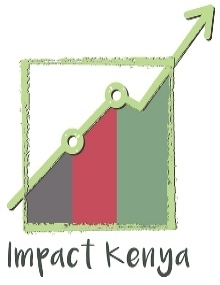Using Evidence to Improve Policy and Program Designs
How can we use evidence more effectively to inform and improve government policies and programs? Despite the fact that Kenya is one of the largest producers of impact evaluations in the world, this evidence often does not reach its intended audiences, limiting its potential to inform policy. Furthermore, research in its traditional form is often seen as lacking relevance for the operational and political realities that policymakers and practitioners face on a daily basis. The Development Impact Evaluation (DIME) group within the World Bank works jointly with National Government counterparts to build evidence that focuses on informing policy and operations by working throughout the life cycle of projects to improve the potential for development impacts. With this purpose, this one-day event brings together policymakers, practitioners and researchers in a high-level discussion on how evidence can be used to generate relevant insights from conception to completion of projects, and showcases a series of ongoing impact evaluations that provide examples of how to do this in practice.
Topics:
Building accountability systems to improve service delivery
Across different sectors in Kenya as in many developing countries, multiple constraints including lack of information, inadequate use of risk assessment of service providers, and weak monitoring and enforcement systems are common, usually leading to low-quality public services. By sharing a similar framework across different sectors, three impact evaluations in this portfolio look at these issues: the Kenya Patient Safety Impact Evaluation; the Judicial Performance Improvement Project; and the Nairobi SmarTTRans Impact Evaluation. By strengthening monitoring, improving the information and rules of the game and providing feedback and other incentives to different relevant actors, this line of work aims at improving patient safety, increasing the efficiency of the judiciary system, and reducing road traffic accidents in Kenya. There is overall agreement on the potential of such mechanisms to improve the quality of service provision but there are significant knowledge gaps regarding the right balance of the parameters (e.g., the type and level of monitoring, information feedback, and incentives/costs, and state-of-the-art technology) that can help build systems where those mechanisms are effective, particularly in contexts like Kenya.
Maximizing the returns to large scale infrastructure investments
The costs of public infrastructure are substantial, and these are typically rationalized because of the potential for transformative impact that these programs can provide. However, the returns to these investments in the form of development impacts are not fixed and fundamentally rely on the appropriate use and management of the infrastructure. This is particularly true for investment in public infrastructure that is only effective when individuals make the last mile connections to bulk infrastructure. The ongoing impact evaluation work explores the investments required for household electrification and sanitation bulk infrastructure and the consistently low connection rates observed, particularly of poor, marginalized communities. The work asks “what can be done to ensure that these investments reach the poor and yield the impacts that justify their investment?” The ongoing evaluation work also explores how complementary “soft” interventions can be incorporated into infrastructure program designs to improve development impact of irrigation schemes.
Last Updated: Jun 13, 2016
